Indigenous Governance Database
White Earth Nation
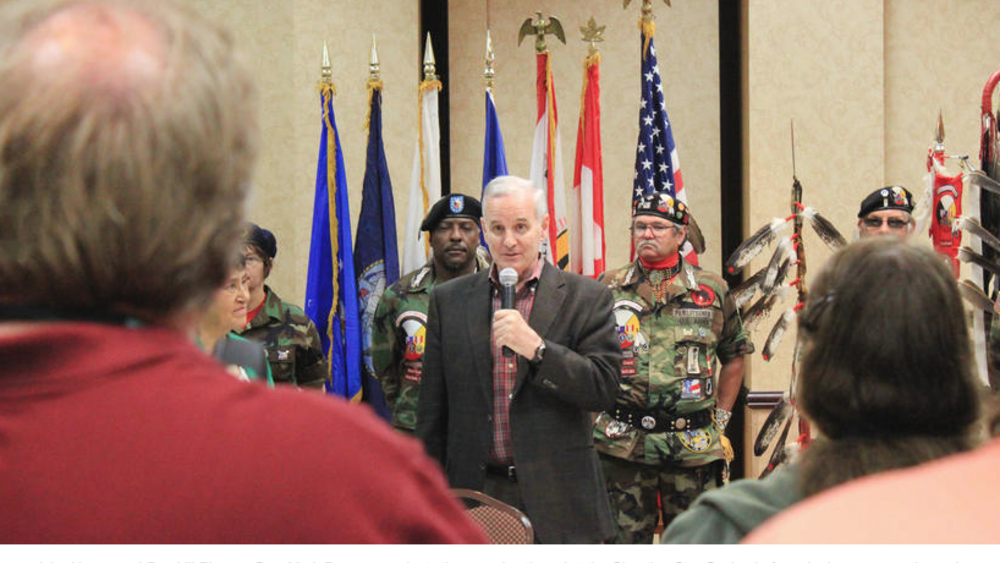
Dayton signs tribal consultation executive order
With the White Earth Nation flag and tribal and state representatives standing behind him, Gov. Mark Dayton signed an executive order Thursday directing state agencies to develop policies to guide them when working with tribal nations...
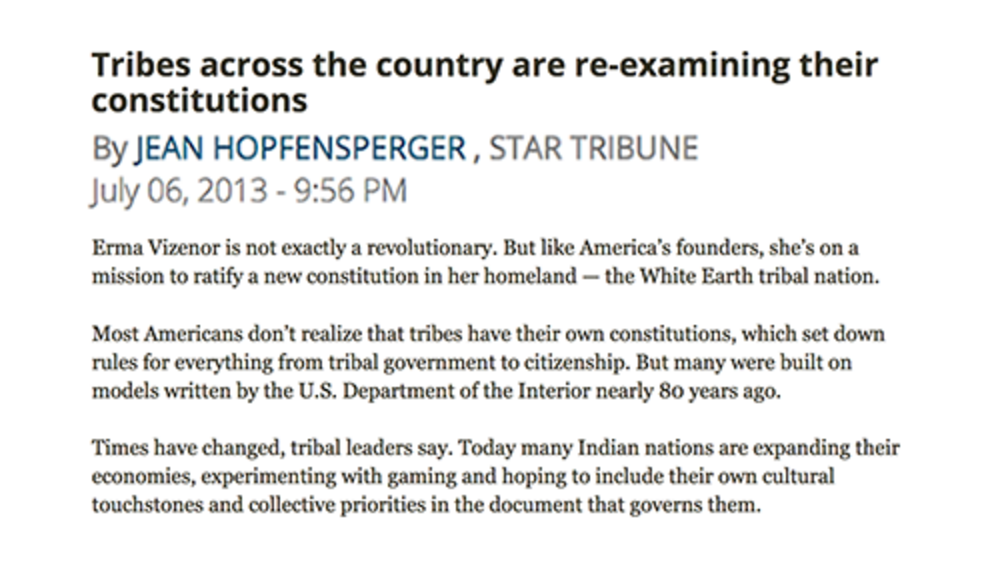
Tribes across the country are re-examining their constitutions
Erma Vizenor is not exactly a revolutionary. But like America’s founders, she’s on a mission to ratify a new constitution in her homeland – the White Earth tribal nation. Most Americans don’t realize that tribes have their own constitutions, which set down rules for everything from tribal…

White Earth and Tsleil-Waututh Nations Partner on Community Wind Power
Two tribes, from different sides of the 49th Parallel, are reuniting Turtle Island with a business deal. A First Nations—owned company in British Columbia will supply wind power to the White Earth Community Service Center in Naytahwaush and to the Ojibwa Building Supplies facility in Waubun, the U.…
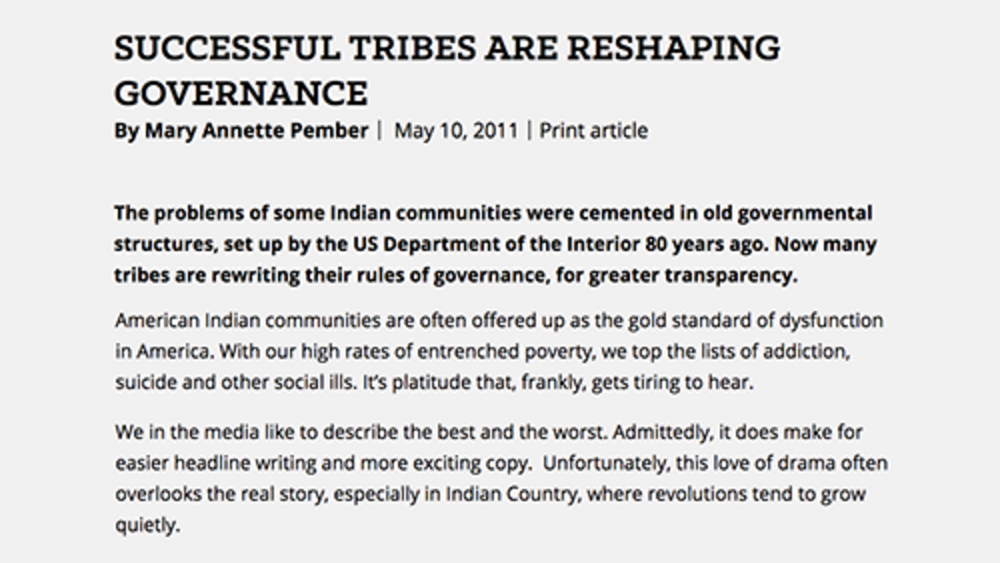
Successful Tribes Are Reshaping Governance
American Indian communities are often offered up as the gold standard of dysfunction in America. With our high rates of entrenched poverty, we top the lists of addiction, suicide and other social ills. It’s platitude that, frankly, gets tiring to hear. We in the media like to describe the best and…
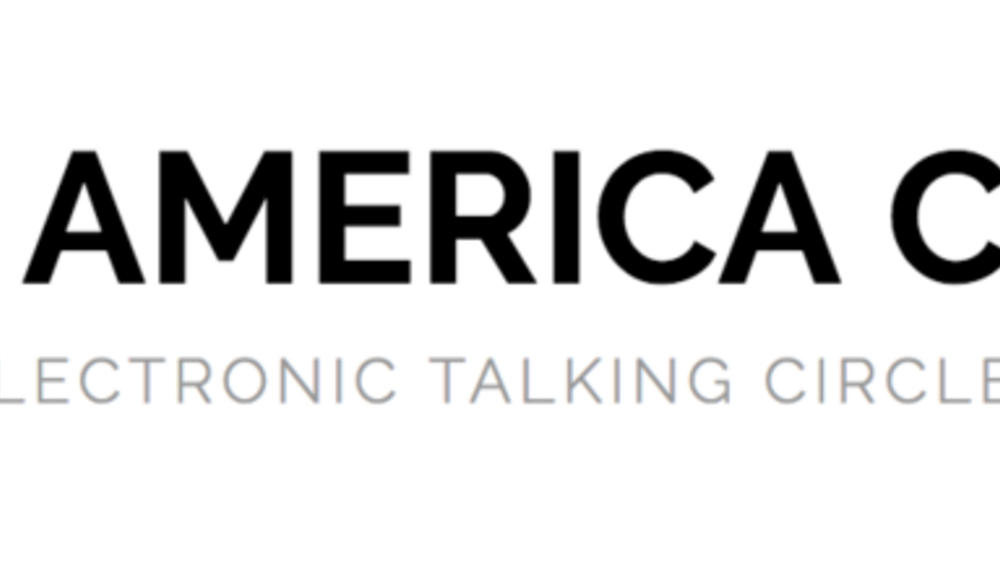
Tribal Enrollment And Blood Quantum
Every tribe has its own rules for membership. Some tribes include lineal descent — proof that you descend from a recognized tribal member — while others have a blood quantum requirement that requires members possess a certain percentage of tribal blood. On White Earth, researchers found that the…
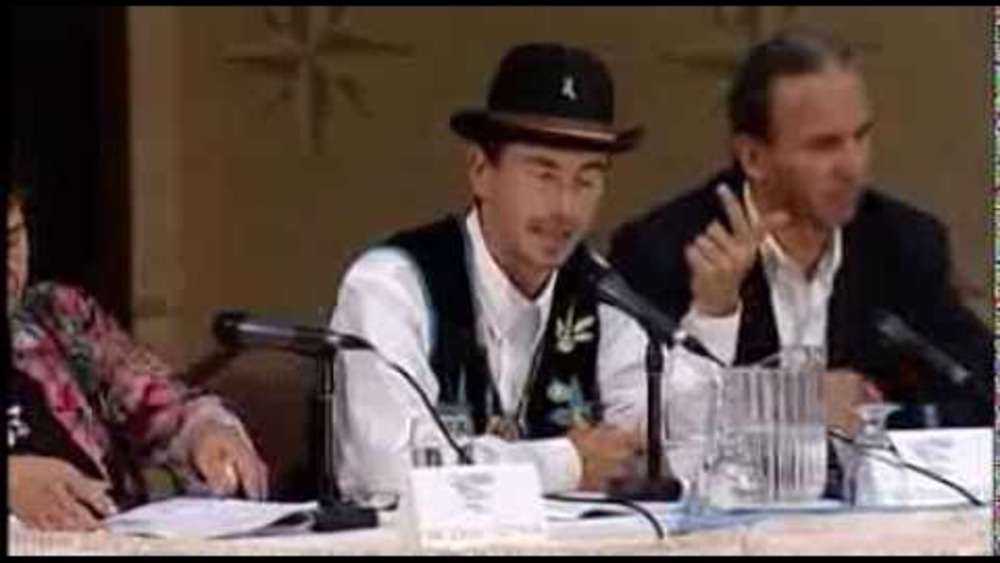
Truth To Tell: Community Connections - White Earth Constitutional Forum Part I
In collaboration with production partner KKWE/Niijii Radio, TruthToTell and CivicMedia/Minnesota traveled west on August 14, 2013, to the White Earth Reservation to air/televise the seventh in our series of LIVE Community Connections forums on critical Minnesota issues. Convened at White Earth's…
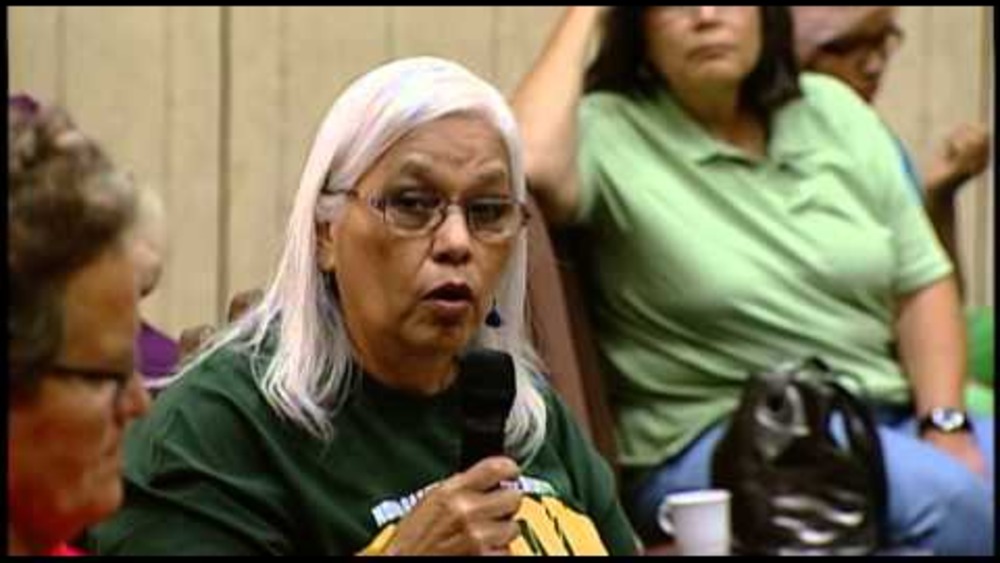
Truth To Tell: Community Connections - White Earth Constitutional Forum Part II
In collaboration with production partner KKWE/Niijii Radio, TruthToTell and CivicMedia/Minnesota traveled west on August 14, 2013, to the White Earth Reservation to air/televise the seventh in our series of LIVE Community Connections forums on critical Minnesota issues. Convened at White Earth's…
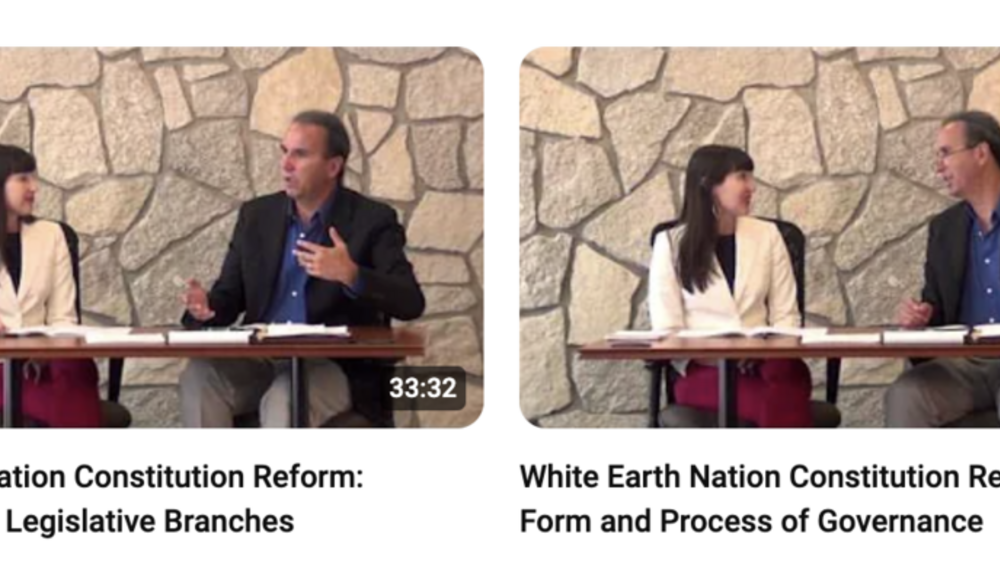
Videos: White Earth Nation Constitutional Reform
As part of its ongoing process of educating the White Earth people and others about White Earth's proposed new constitution, White Earth Nation's Constitutional Education Team produced several videos for White Earth citizens to view in order to gain a better understanding of the key governance…
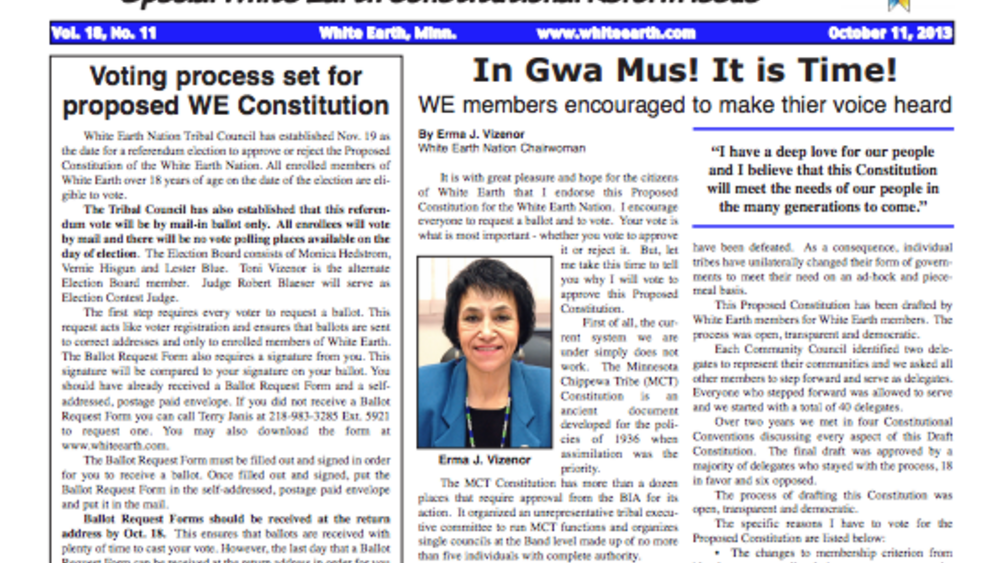
Special White Earth Constitutional Reform Issue
As the White Earth Nation prepares for a referendum election to approve or reject the proposed constitution, the Reform Committee has implemented a series of citizen engagement activities that includes a special issue of the tribal newspaper to inform citizens of the election date, proposed changes…
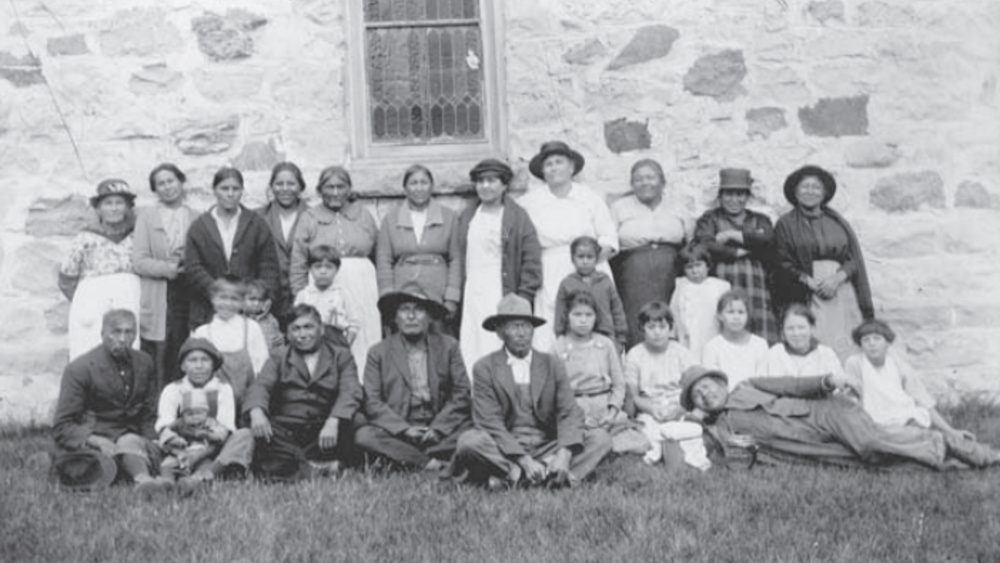
An Anishinaabe Tribalography: Investigating and Interweaving Conceptions of Identity During the 1910s on the White Earth Reservation
This article explores the varied ways in which the Anishinaabeg of White Earth defined themselves during the early twentieth century. It consists of two primary parts. In part 1 I go beyond the artifacts in order to enliven the history, to offer an alternative way of remembering the past. In…
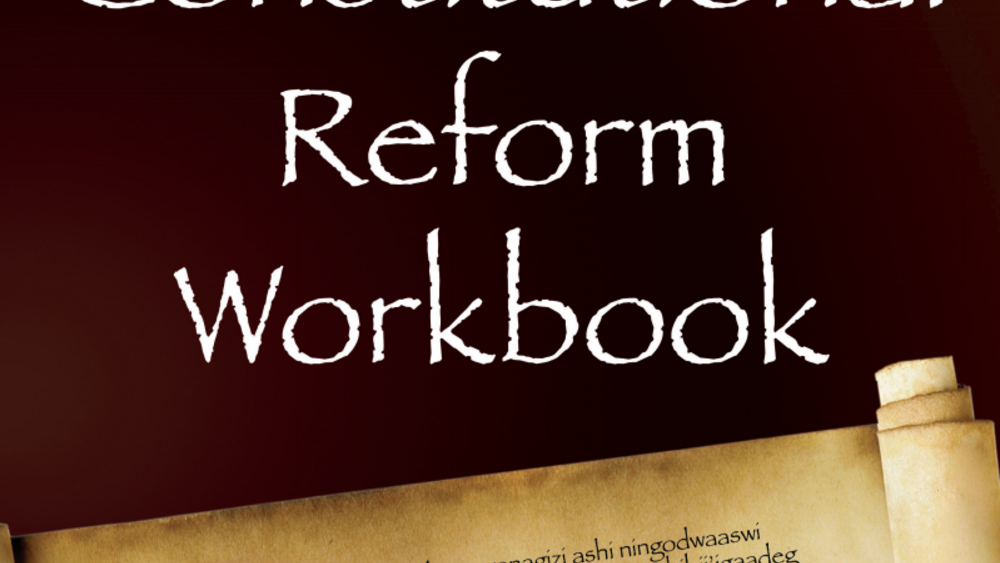
White Earth Nation Constitutional Reform Workbook
The core purpose of this Constitution is to take action and directly express, through that action, native cultural sovereignty. This workbook is designed to help the citizens of the White Earth Nation to understand their constitution. Through this effort and through your understanding of the…
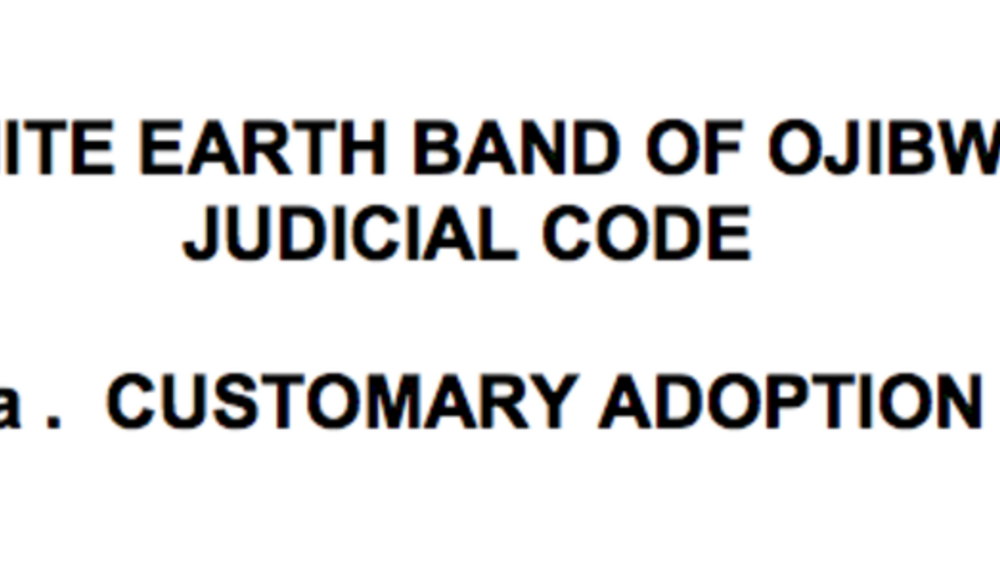
Customary Adoption Code, White Earth Band of Ojibwe
This code, developed by the White Earth Band of Ojibwe, allows adoption on the reservation for children but in a way that promotes cultural growth and support.
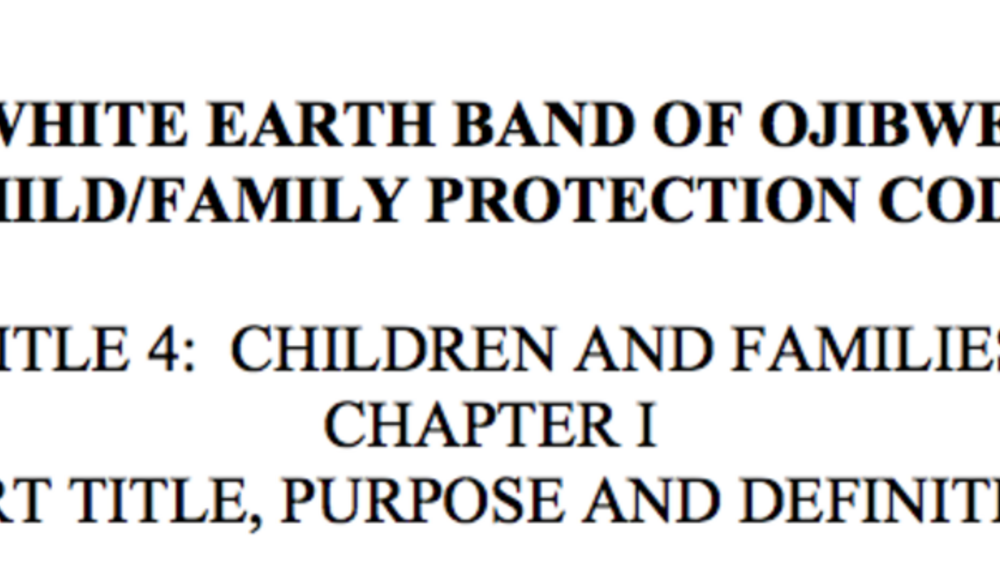
White Earth Band of Ojibwe Child/Family Protection Code
The Child/Family Protection Code, drafted by the White Earth Band of Ojibwe for the purpose of protecting children and families from events of abuse, poverty, and separation.
Pagination
- First page
- …
- 1
- 2
- …
